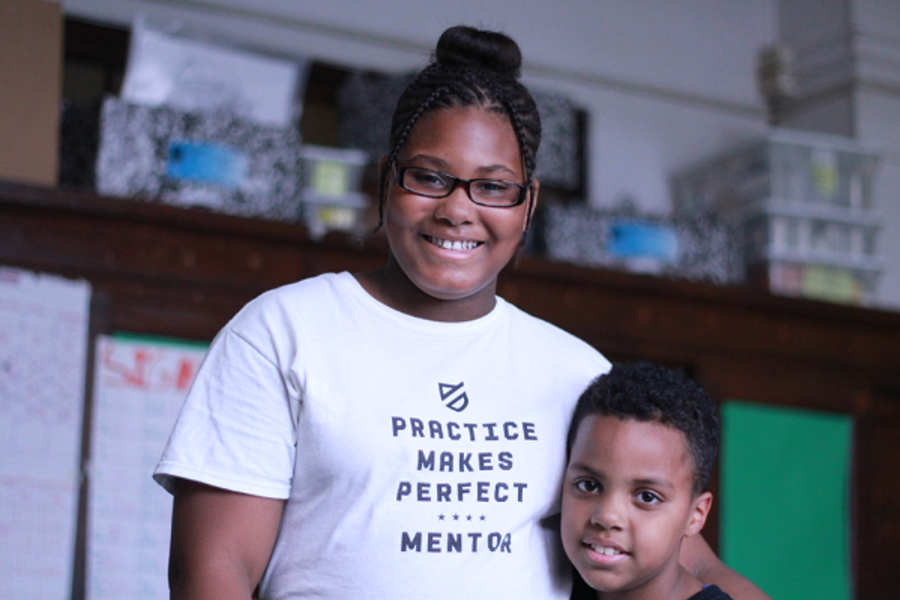Practice Makes Perfect

Locations
- Practice Makes Perfect - New York City, New York
Focus Area
- Education
“Practice Makes Perfect is founded on the belief that all children, regardless of race or socioeconomic status, should have equal potential and opportunity to compete intellectually in our society.”
The Issue
Most states require students to meet basic academic standards before moving to the next grade level. But even if students are ready to advance to a new grade, the summer months they spend outside the classroom can pose a significant challenge to their learning. The “summer slide,” or learning loss, that occurs over summer vacations can leave students ill-prepared for the new, more challenging classes they begin in the fall. And with 12+ summer vacations between kindergarten and high school, the cumulative effects of the learning loss can leave kids worlds behind their peers.
The summer slide affects students of all races and income levels. But like many obstacles to success, its effects are worse for low-income students and students of color. Families with higher incomes can hire private tutors, enroll their kids in summer camps, take family vacations, and explore learning opportunities in their communities. But not every family has the means to do the same. Research finds that, after years of cumulative summer learning loss, Black and Latino students are two to three years of learning behind their white peers.
This learning gap greatly impacts the ongoing success of students of color. A student’s level of learning over the summer affects their likelihood of completing high school and college. A 2007 study by Alexander, Entwisle, and Olson finds that 60% of high-income youth attend a four-year college by the age of 22, while only 7% of low-income students do. Similarly, only 9% of freshmen in the nation’s top 120 tier-one colleges are from families in the bottom half of America’s income range.
Summer slide widens the achievement gap between American students. When we fail to provide equitable summer learning opportunities for students across all races and socioeconomic classes, we potentially hinder the classroom success of students of color and allow injustice and inequality to persist.
The fiscal costs of the achievement gap are also striking. A 2009 study by McKinsey and Company found that lagging achievement as early as the 4th grade has long-lasting effects—predicting high school and college graduation rates and lifetime earnings. McKinsey found that narrowing the achievement gap of Black and Latino students in 2009 would have raised U.S. GDP by $310-525 billion, or 2-4%. If the gap for low-income students was narrowed, GDP would have increased by $400-670 billion, or 3-5%.
Students should not have to face systematic obstacles to success. Programs like Practice Makes Perfect work to make sure every child in America has the opportunity to succeed in the classroom and reach their fullest potential. After all, classroom success is one of the first steps to a brighter future. And a brighter generation.
The Intervention
Practice Makes Perfect is founded on the belief that all children, regardless of race or socioeconomic status, should have equal potential to compete intellectually in our society. The program provides high-quality summer learning opportunities for low-income elementary and middle school students living in New York City.
The intensive five-week Practice Makes Perfect program includes two important elements: mentoring and academic enrichment. The academic curriculum aligns with national standards and focuses heavily on math, reading, and English. But the really unique element of the model is its use of peer tutoring and mentorship. The program connects students with peers and college-age mentors from their communities. For Practice Makes Perfect, learning by example is one of the most powerful vehicles of change.
The program also offers community immersion experiences. Throughout the summer, students have the opportunity to learn more about their communities by visiting parks, museums, and important local spaces.
Research Question
Does participation in the Practice Makes Perfect program reduce the impact of summer learning loss on the academic outcomes of low-income, inner-city students?
Intended Outcomes
- Students who participate in the Practice Makes Perfect program will have higher test scores, better attendance, greater likelihood of on-time grade promotion, and fewer disciplinary events than those who do not.
Research Study Design
The Practice Makes Perfect study is a pilot randomized controlled trial. Four inner-city schools across New York City participate—two elementary schools and two middle schools. Each school offers two Practice Makes Perfect classes with 20 seats each. In total, 160 students participate in the Practice Makes Perfect curriculum and are part of the treatment group. The outcomes of the Practice Makes Perfect students are compared with the outcomes of their peers who do not participate—the control group.
To fairly assign students into the treatment and control groups, each school provided LEO with a list of every student eligible for the program. LEO researchers randomly sorted these students onto a waitlist. School administrators then offered seats in the program to students in the top part of the waitlist, while students in the bottom part of the waitlist were part of the control group and were not offered a spot in the program.
(Photo credit: Practice Makes Perfect)